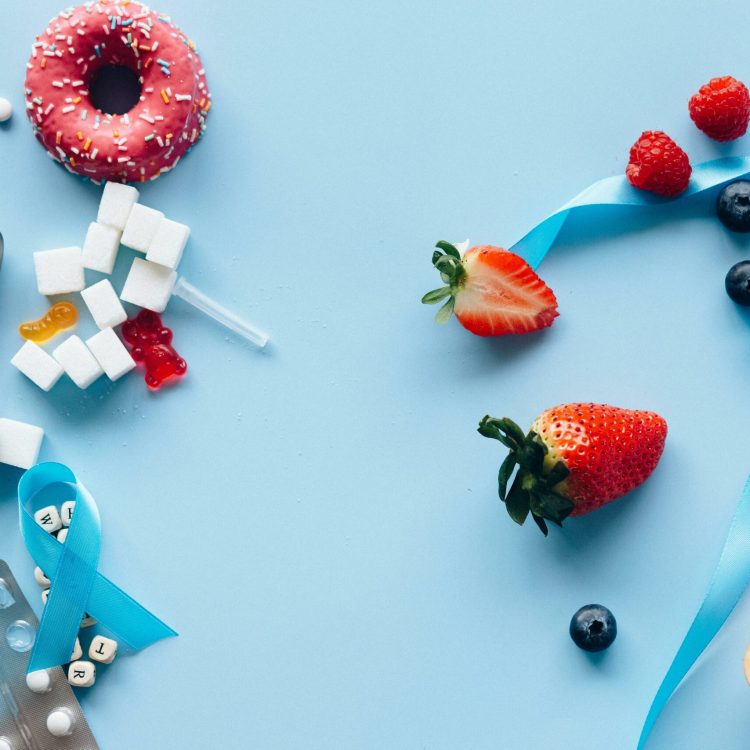You know that feeling —
your to-do list is overflowing, yet your brain feels foggy and your body sluggish. You need a recharge, but instead of rest or nourishment, you reach for a quick fix: a strong coffee, a handful of crisps, a biscuit or two… or maybe the entire chocolate drawer.
Those quick bursts of energy might help you push through the moment, but they’re not a sustainable solution. In fact, they can set off a cycle of highs and crashes — leaving you even more tired and craving more sugar or caffeine just to stay afloat.
There’s one simple yet powerful nutrition strategy I return to time and again in my practice when supporting clients who experience these energy dips, snack cravings, or mid-afternoon slumps. It also tends to improve mood, concentration, and overall wellbeing.
And it all comes down to blood sugar balance.
Why Blood Sugar Balance Matters
Your blood sugar — or glucose — levels naturally rise and fall throughout the day. But when these fluctuations become too steep, your energy, focus, and even emotional stability can take a hit.
It’s not just about how much sugar is in your bloodstream — it’s about how efficiently your body can move that sugar into your cells to create energy, and how well your insulin pathways and nutrient stores support that process.
This intricate system relies on a steady supply of key vitamins, minerals, enzymes, and other nutrients. When it’s not well supported, those blood sugar “crashes” can show up as fatigue, irritability, anxiety, or insatiable hunger.
Many people experience this mid-morning, around 4 p.m., or even as a general low-level tiredness that persists all day.


The One Change That Makes a Big Difference
Have an early, protein-rich breakfast.
It sounds simple, but time after time in clinical practice, I’ve seen this one change transform people’s energy, focus, and mood more than almost anything else.
Once energy levels begin to stabilise, other healthy habits — like improving fibre intake, eating more colourful vegetables, drinking enough water, exercising, sleeping well, and addressing emotional eating — become much easier to put into place.
What Does a Protein-Rich Breakfast Look Like?
Protein helps stabilise blood sugar and keep you fuller for longer. Depending on your preferences, that might look like:
Adding a generous handful of nuts and seeds to your porridge or yoghurt, or
Enjoying eggs — perhaps a mushroom, feta, and herb omelette.
Think outside the cereal box — literally. Most commercial breakfast cereals are high in refined carbohydrates and low in protein, which means they can trigger exactly the kind of energy crash we’re trying to avoid.
If You Struggle to Eat Breakfast
If you’re not hungry first thing, it may be because you’re eating too late at night. Aim to finish dinner at least three hours before bed to give your body time to digest and reset.
Stress can also blunt your appetite. When you’re rushing around in the morning, your nervous system stays in “fight or flight” mode — and digestion simply isn’t a priority.
Try creating a calm 10-minute ritual in the morning: sit down, breathe deeply, imagine a gentle bubble of calm around you, and mindfully enjoy your first few bites. You may be surprised how your appetite responds.
And What About Coffee and Snacks?
Coffee itself isn’t the enemy — in moderation, it’s rich in antioxidants called polyphenols, which can actually support focus and brain health.
But if you find yourself needing constant coffee or snacks to get through the day, it’s worth re-examining your blood sugar balance. Once that steadies, you’ll naturally rely less on these stimulants.
Will an Early Breakfast Solve Everything?
Probably not — but it can make a world of difference. It’s a simple, foundational shift that supports energy balance, hormone health, and mood regulation.
Start there, and notice how much easier the rest of your healthy habits become.













